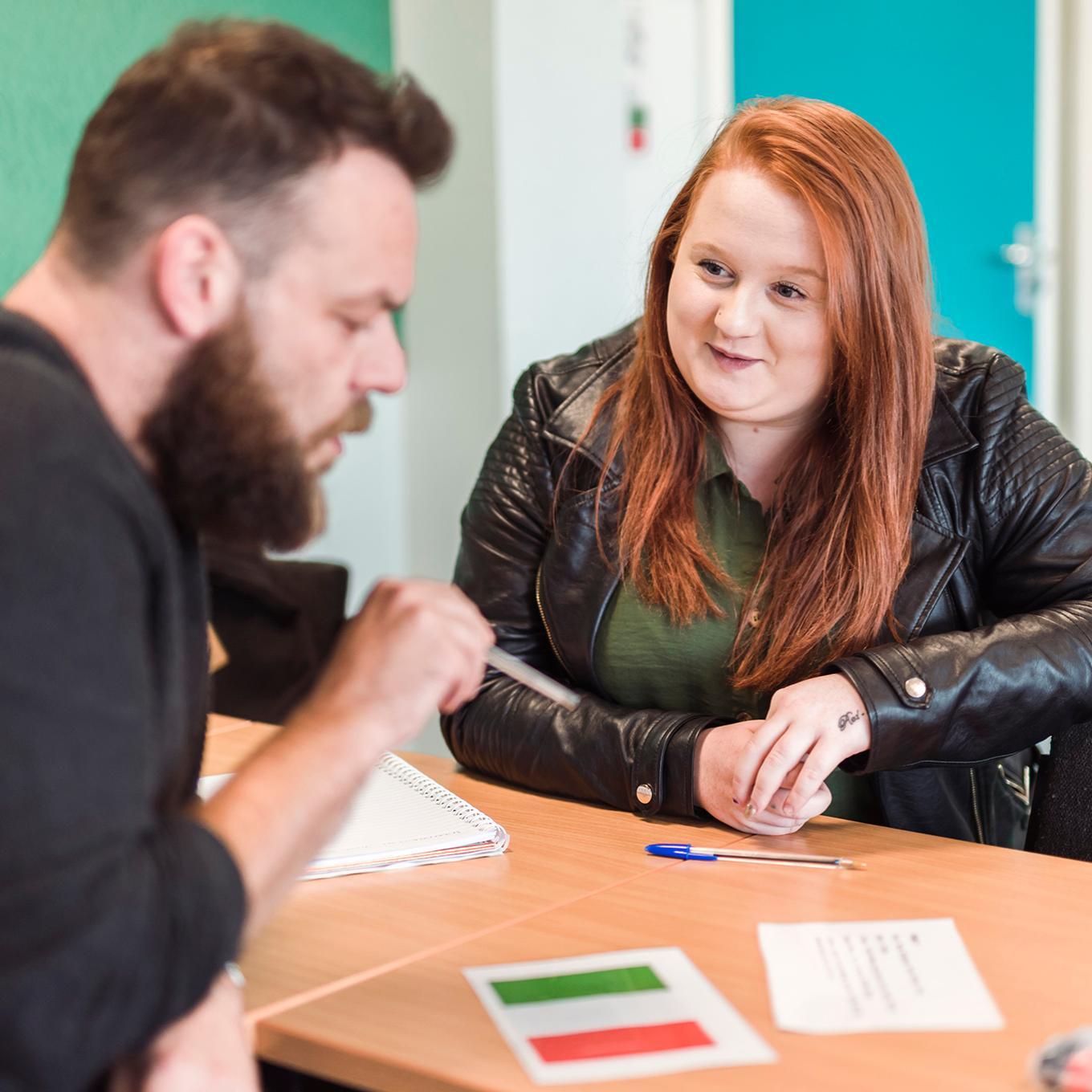MSc Health, Mental Health & Wellbeing

Course details
Year of entry
2024
Duration
1 YR (FT) 2 YRS (PT)
Institution Code
G53
Location
Blended Learning, Online, Wrexham
Course Highlights
Exciting
and cutting-edge curriculum
Authentic
assessment briefs that simulate 'real life' activities
Flexible
and supportive teaching and learning strategy
Why choose? this course?
It is well known that healthcare organisations in the UK and beyond face unprecedented demands, and there is a real need to invest in public health, mental health and wellbeing.
At the heart of this unique programme is the ambition to equip students with the advanced knowledge and skills to guide and support individuals, communities and nations to live happier and healthier lives.
- This exciting and forward-thinking programme encourages students to consider contemporary and ‘wicked’ public health, mental health and wellbeing challenges, as well as emerging threats.
- It facilitates a creative and problem-solving approach to the field in order to improve, enhance and sometimes re-imagine ways of working.
- The programme is flexible, ambitious and supportive, and will provide students with the opportunity to further their knowledge and understanding, develop and enhance their practice, as well as ask questions and work collaboratively.
Key course features
- Encourages creativity, reflection, questioning and problem solving
- Development and enhancement of practice through Work-Based Learning
- Authentic assessment briefs that simulate ‘real life’ activities
- Flexible study options, whereby students can choose to learn in the classroom, online, or a combination of the two
- Taught by experts in health, mental health and wellbeing
What you will study
Students completing the programme full-time will undertake six core modules across the academic year, and one of the two option modules. Those taking the course part-time will study three modules in the first year and three in the second year.
MODULES
- Background and new directions in health, mental health and wellbeing (core): As physical and social environments evolve, so too do public health, mental health and wellbeing challenges and how we can effectively tackle them. Over the past decade, new and emerging threats to health have been issues such as loneliness, air pollution and physical inactivity. These issues are likely to continue, alongside threats related to climate change and anti-microbial resistance. This module is wide-ranging and forward-thinking in its aims and scope; it will enable students to engage critically with the background and context to public health, mental health and wellbeing leading up to the present day, as well as introduce them to contemporary debates and inspire them to consider future directions for the area.
- Understanding contemporary lifestyles and health behaviours (core): To truly develop the health, mental health and wellbeing of individuals, communities and nations, a rich understanding of human beings and societies is needed. There are many lenses and tools for understanding why people live their lives in the ways they do, spanning a number of disciplinary areas. This module will provide students with the knowledge of a range theories and models relevant for understanding contemporary lifestyles and health behaviours, drawing particularly from the disciplines of psychology and sociology. It will also enable students to critically consider the application of these theories and models to different populations in different settings.
- Strategies and innovations for developing health, mental health and wellbeing (optional): In a rapidly changing society where public health, mental health and wellbeing challenges are increasingly complex and continually evolving, a strategic and innovative approach is needed. This module will provide students with the knowledge and understanding related to new and existing strategies for developing health, mental health and wellbeing at individual, community, national and international levels. It will explore the evidence and practicalities associated with different strategies, as well as encourage students to think innovatively and creatively about ways of improving and promoting good health in society.
- Health, mental health and wellbeing in education settings (optional): In the Curriculum for Wales 2022, ‘Health and Wellbeing’ is identified as one of the six Areas of Learning and Experience (ALE). The curriculum contributes to the goals set out in the Well-being of Future Generations (Wales) Act 2015 to develop healthy and confident individuals. This module will explore the topics of health, mental health and wellbeing as they relate to young people in today’s society, as well as consider the content, design and delivery of the Health and Wellbeing ALE and examine innovative teaching pedagogy that could be utilised by teachers to develop healthy and confident learners.
- Enhancing practice in health, mental health and wellbeing (core): Working in the health sector requires an ever broadening range of skills and capabilities, backed up by experience and reflective practice. In this module, students will learn to develop the skills and capabilities to work effectively in different roles. It will also, through means of a work-based learning placement, allow students to gain valuable experience of working in the area and enable them to start building a network. The module will be flexible and wide-ranging in its aims and scope, in order to appeal to the personal career needs and goals of those new to and already working within the health sector, as well as respond to new and emerging skills and capabilities to enhance practice.
- Research methods for health, mental health and wellbeing (core): The nature of public health, mental health and wellbeing – namely that it deals with the complex issue of people’s lives and can often involve those in a vulnerable state – presents particular challenges for researchers in terms of ethics, designs and methods. This module will teach students how to undertake research related to public health, mental health and wellbeing, including how to collect and analyse data and design ethically sound research studies. It will encourage students to think creatively and innovatively in relation to research methodology, in order to be considerate to the nature of the subject area and matter.
- Dissertation in health, mental health and wellbeing (core): Research in public health, mental health and wellbeing is vital for many reasons, including developing the evidence for new and existing health improvement and promotion strategies, understanding people’s lived experiences of health issues and services, and exploring health behaviours at individual, community and national levels in an evolving physical and social environment. This module will support students to undertake their own piece of research on a topic of their choosing, and disseminate their findings in a format suitable to their personal career needs and goals.
The information listed in this section is an overview of the academic content of the programme that will take the form of either core or option modules. Modules are designated as core or option in accordance with professional body requirements and internal academic framework review, so may be subject to change.
Entry requirements & applying
You will be expected to already hold an undergraduate degree in a related subject (normally a 2:1 or above, although 2:2 may also be accepted dependent on interview).
A non-graduate may be accepted as a candidate provided they have held, for a minimum of two years, a responsible position which is relevant to the programme within the previous five years.
All applicants must be able to demonstrate enthusiasm and the ability to study at masters level, which will be assessed through an interview in person or online. They may also be asked to undertake the university’s Level 6 module that prepares students for masters level study.
DBS clearance undertaken by Wrexham University is not a requirement for acceptance or progression onto the programme. However, as part of the programme students are required to undertake a work-based learning (WBL) for one of the modules and, depending upon the nature of the WBL, may be required to receive DBS clearance undertaken by Wrexham University or through their chosen WBL provider. Any convictions revealed by a DBS check could mean particular WBL opportunities are closed to students.
Teaching & Assessment
You will be assessed on this programme via a combination of ‘traditional’ and ‘authentic’ methods of assessment, including essays, presentations, portfolios and reports. You will be set flexible and exciting briefs for their assessments, which they can tailor to topics and issues that are of interest. You will be supported in a number of ways with their assessments, including the provision of assessment briefing guidance videos, and the ability to submit draft work and book tutorials with module tutors to discuss their assessments.
Teaching and Learning
This Masters programme follows a flexible Active Learning Framework (ALF) whereby students can make their own decisions about how and when to engage with the learning activities. The content for all modules is delivered on a weekly basis in a classroom setting (usually a Friday), which is audio and video recorded. The recordings are made available on the Virtual Learning Environment (VLE) to all students, alongside directed study. Students can self-select one of three modes of engagement with the module learning activities:
- Option 1: Online learning; students learn completely online in their own time by watching the recordings of the classroom sessions and engaging in the directed study. This is the best option for students who are not available on a Friday to attend the live sessions.
- Option 2: Blended learning; students learn by attending some of the classroom sessions live and others by watching the recordings and engaging in the directed study in their own time. This is the best option for students who know they can attend some, but not all of the live sessions.
- Option 3: Live learning; students learn by attending the classroom sessions on a Friday and engaging with the directed study in their own time. This is the best option for students who want to learn live in the classroom and are able available to do so.
Students will be required to complete an induction (on campus or online) before the programme commences, during which the learning and teaching strategy will be explained in more detail. All students will also be allocated a personal tutor while completing the programme, who will help to guide them with their personal, academic and professional development, and signpost to further support if/when needed.
Wrexham University is committed to supporting our students to maximise their academic potential.
We offer workshops and support sessions in areas such as academic writing, effective note-making and preparing for assignments. Students can book appointments with academic skills tutors dedicated to helping them deal with the practicalities of university work. Our Student Support section has more information on the help available.
In terms of particular needs, the university can provide appropriate guidance and support should any students require reasonable adjustments to be made because of a recognised prevailing disability, medical condition, or specific learning difficulty.
Career prospects
Our Careers & Employability service is there to help you make decisions and plan the next steps towards a bright future. From finding work or further study to working out your interests, skills and aspirations, they can provide you with the expert information, advice and guidance you need.
Graduates of the course would be well-placed to pursue careers in any of the following areas:
- Health Promotion
- Ill-health Prevention
- Health Improvement
- Community Health Development
- Assessment and Surveillance of the Population’s Health and Wellbeing
- Identification of and Planning for Public Health Emergencies
- Identification of Health Challenges and Hazards in Key Settings
- Health-related Research
- Health-related Education
- Development of Public/Mental Health Policy
- Commissioning, Delivery and Evaluation of Health Services
- Reduction of Health Inequalities
- Link Working, Care Navigation and Social Prescribing
- Advocacy
Graduates may currently work or go on to work in many different settings, including local or national government, the third sector, or National Health Service. Alternatively, students may wish to develop their own social enterprise in the field of public health, mental health and/or wellbeing.
Fees & funding
You do not have to pay your tuition fees upfront.
The fees you pay and the support available will depend on a number of different factors. Full information can be found on our fees & finance pages. You will also find information about what your fees include in the fee FAQs.
All fees are subject to any changes in government policy, view our postgraduate fees.

